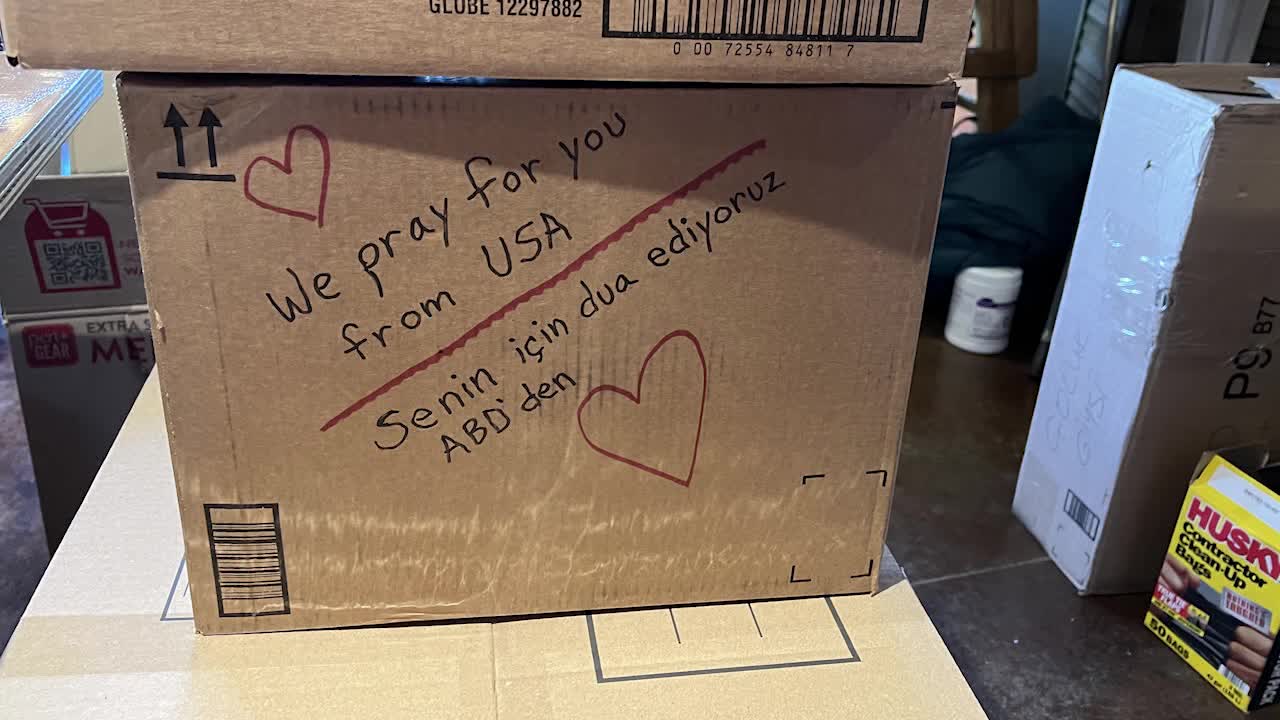“I think the whole country’s crying.”: Minnesotans work to aid Turkey following deadly earthquake
The cell phone video shared with 5 EYEWITNESS NEWS shows destroyed and crumbling buildings as far as you can see.
The damage is from two earthquakes that struck Turkey and Syria nearly two weeks ago, killing nearly 44,000 people, and displacing millions more.
“I think the whole country’s crying,” declares Pinar Karaca-Mandic, a University of Minnesota Health Care Economist. “That’s the sense I get when I talk to people.”
The video, courtesy of Hakan Cavdar, shows quake-ravaged sections of Malatya, a city in southeastern Turkey.
It’s one of ten cities hit hard nearly two weeks ago by a pair of powerful earthquakes, magnitude 7.8 and 7.6 respectively.

“It’s going to be a mark of this earthquake for so many thousands,” says Berk Tas, of Eden Prairie. “The scale is unimaginable.”
All of this is unimaginable for Turkish people who now call Minnesota home.
“I just can’t imagine the pain of people there, I just can’t,” exclaims Karaca-Mandic. “I would be lying if I told you I understand the situation.”
She says she moved to the U.S. from Turkey in 1992, living in Minnesota since 2007.
Each day, Karaca-Mandic watches the news updates on her iPad.
One of her biggest concerns is about a friend’s cousin who was caught indoors during one of the earthquakes.
“This is not something you can prepare for,” Karaca-Mandic explains. “She described being thrown from one wall to another wall. There’s no planning. You’re lucky or you’re not lucky.”
She says she also keeps in touch with her longtime best friend Hale Dincerler Yigiter, who lives in Istanbul.
Yigiter, who spoke with us during a Zoom call, says several relatives in the earthquake zones were forced from their homes because of fears their buildings would collapse.
Some of them moved into an unheated subway car, with only blankets for warmth.
Others are using tents or shipping containers for shelter.
“We woke up with the news of this huge earthquake,” Yigiter explains. “They weren’t allowed to get in their homes, even if they were staying in smaller buildings, they were sleeping outside, because they were so horrified. They couldn’t get in.”
But close to home, Minnesotans with ties to the earthquake-damaged region are stepping in to help.
At the Med Box Grill in Chanhassen, the Turkish American Association of Minnesota, or TAAM for short, is working with the non-profits ‘Bridge to Turkey Fund’ and St. Louis Park-based ‘Matter’ — collecting more than 150 boxes of clothes, toys and medical supplies, to be flown to Istanbul.
“The hospitals have been destroyed and collapsed because of the earthquake, and they lost the tools as well,” notes Ilgin Sezer, the association’s incoming president. “So these medical supplies will help these emergency hospitals they have built.”
Sezer says the group has collected about 5,000 pounds of medical supplies, which are expected to be flown to Turkey either Saturday or Sunday.
Other donations, like clothing, are to be shipped later next week.
The association says it plans to launch another donation drive in the future.
Meanwhile, there are growing calls for Turkish authorities to investigate alleged shoddy construction of buildings.
Government officials there have already issued more than 130 arrest warrants, targeting contractors and developers.
“I hope we don’t forget again why we have these (building) codes — why it’s necessary, and what’s at stake,” Tas says.
The father of two says this is personal.
His parents and other family members still live in Turkey.
Tas says when he was just sixteen, he survived the 1999 earthquake there.
He adds that friends are volunteering as rescue workers in this current crisis.
“It was a very weird feeling when you’re being shaken. And then the second thing is fear,” he notes. “It’s hard not to get angry when l hear stories of our friends who are trying to do rescue missions, and all they do is deliver dead bodies to their families.”
Members of Minnesota’s Turkish community say they’re doing everything they can to help.
But Karaca-Mandic says the recovery of her native country, after so much destruction and death, is a task that could take years.
“This is not about rescuing people and being done,” she says. “This is going to be about building new schools. This is going to be about opening new clinics, both for mental health and physical health. This is going to be a very long process of healing and recovery.”
You can find out more about the Turkish American Association of Minnesota’s fundraising efforts here.
Information about the Bridge to Turkey Fund can be found here.